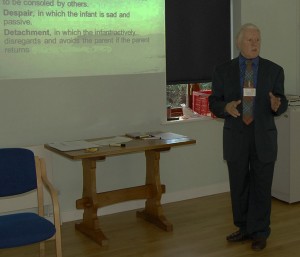
Next Tuesday, 1st October, is the 4th day of the modular course; 4 out of 8 sessions, so by the end of the day we will be half way through.
We begin the morning looking at the complexity of grief, and the factors that can complicate the process. We will discuss Robert Neimeyer’s assertion that there is no one way though grief, but that there are many, ‘qualitatively distinct’ pathways.
Then we will move on to discussing some of the valid ways of supporting grieving people other than our counselling model, including befriending, support groups, social work models, spiritual/religious models and medical models of support.
We will look at our counselling model in detail, including factors known to predict outcomes, when compared to a medical model of support.
We will consider in some detail, Karen Tallman and Art Bohart’s concept of the client as an Active Self-healer (Bohart & Tallman 1999). My view is that ALL counsellors should read this book, AND Mick Cooper’s book, (see below)
Then we will consider models and theories of grief:
Assumptive World Theory
Meaning-making
Lois Tonkin’s Circle’s model (grief as growth)(More models of grief follow in week 5)
In the afternoon we will visit active listening skills and practice in triads.
The following works will be referred to:
Atherton, J.S.1989 Interpreting Residential Life: Values to Practise. Chapter 8: Of Skeletons and Shells London, Tavistock/Routledge
Attig, T. (2001) Relearning The World: Meaning Making and Meaning Finding. In Meaning Reconstruction and the Experience of Loss. Edited by Robert Neimeyer. Washington DC: American Psychological Association .
Bohart, A.C. & Tallman, K. 1999. How Clients Make Therapy Work: The Process of Active Self-Healing. Washington DC: American Psychological Association.
Cooper, M. 2008. Essential Research Findings in Counselling and Psychotherapy: The Facts are Friendly. London, Sage
Davis, C.G. (2001) The Tormented and the Transformed: Understanding Responses to Loss and Trauma. In Meaning Reconstruction and the Experience of Loss. Edited by Robert Neimeyer. Washington DC: American Psychological Association..
Janoff-Bulman, R. 1992. Shattered Assumptions: Towards a new psychology of trauma. New York:The Free Press
Kauffman, J. 2002 Loss of the Assumptive World: A theory of traumatic loss. New York, Brunner Routledge.
Keesee, N.J Currier, J.M & Neimeyer, R.A. (2008) Predictors of grief following the death of one’s child: the contribution of finding meaning. Journal of Clinical Psychology, 64, 1145-1163
Nadeau, J.W. (2001) Family Construction of Meaning. In Meaning Reconstruction and the Experience of Loss. Edited by Robert Neimeyer. Washington DC: American Psychological Association.
Neimeyer, R. A. (2009). Presentation to The Bereavement Research Forum St. Annes College Oxford. 14th July 2009. Researching Meaning-Making: Narratives of Grief and Loss.
Panksepp, J. 1998 Affective Neuroscience: The Foundations of Human and Animal Emotions. New York: Oxford University Press.
Parkes, C. M. (2006). Love and loss: The roots of grief and its complications. London: Routledge.
Stroebe, M.S. & Schut, H. (2001) Meaning Making & the Dual Process Model of Coping with Bereavement. In Meaning Reconstruction and the Experience of Loss. Edited by Robert Neimeyer. Washington DC American Psychological Association Books.
Tonkin, L. (2007). Certificate in Grief Support: Extending Your Skills in Working With Grieving Adults. Christchurch, New Zealand: Port Hills Press.